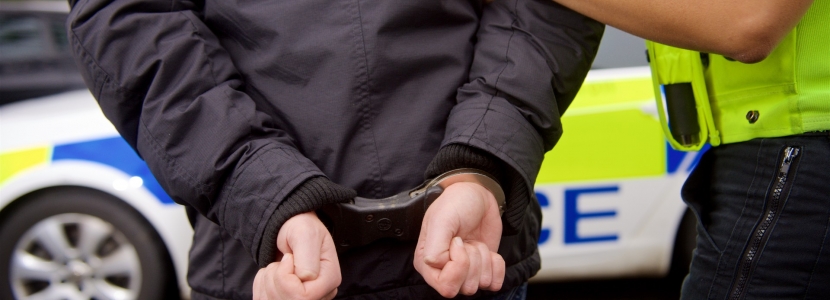
The good news is that knife crime is down in the Thames Valley. The impacts of coronavirus and the harsh restrictions on all of our lives as a result have undoubtedly contributed to this reduction. This should not however detract from the incredible work of the police in bearing down on those who carry knives. Stop and search is an invaluable tool in this fight and one that has been exercised proportionately and carefully by Thames Valley Police. This is just one of a range of tactics that the police can and do employ in order to deter and detect those who carry knives and choose to commit crime with them. Everything from covert surveillance against criminal gangs and support from armed response teams through to increased patrols by PCSOs and neighbourhood intelligence is being deployed to tackle this problem, and the hard work of our police officers locally is paying off.
Of course the downward trend in knife crime incidents looks weak when we see the stark and horrific results of individual incidents. Sadly too many people - often young people - see their lives cut short, or significantly altered by the blade of a knife. On many occasions the difference between a serious assault and a murder can simply be the matter of an inch or two, or by the speed of the emergency response to treat the injuries. By the same strange twists of fate that can turn an already vicious attack into a fatal one, the police can have great successes in taking a large number of knives off the streets but it takes only one knife in the wrong hands to end a life.
The enforcement efforts of Thames Valley Police to prevent knife crime and apprehend those who do use knives as tools of criminality will continue in every part of the Force. Officers are supported in their work by the Violence Reduction Unit which coordinates many of the tactics used on the front line. Important though it is, the hard edged enforcement action by the police will not defeat the scourge of knives on our streets on its own.
For most of us it would be unthinkable to carry a weapon - even for self defence. The idea of settling an argument at the point of a knife would seem alien to us. Yet sadly there are some in our community who not only seem to consider it acceptable but for whom it has also become normalised. Until we defeat this attitude we will never defeat knife crime on our streets through enforcement alone.
This is a large part of the work that I oversee in the Violence Reduction Unit, seeking to achieve a generational shift in attitudes and change the life chances of those who may otherwise fall into knife crime. We are not talking about the hardened criminals who may seek to use violence as a form of enforcement, but often young people for whom the difference between becoming a victim or a perpetrator of knife crime can be incredibly small.
Some of this work, such as partnering with local charitable organisations to engage with young people when they are actually in police custody - literally a captive audience - may not seem revolutionary but can make a real difference. Just as the tough enforcement approach by the police has to take knives off the streets one by one, so the engagement with individuals can seem slow, but it is where the real impact can be felt. Diverting young people from crime is in no way a soft option. Stopping someone from offending or reoffending will prevent someone else from becoming a victim - and in the case of knife crime that could mean saving a life.
The Violence Reduction Unit is a project overseen by the Police & Crime Commissioner, but it is a true partnership. Incredibly well led by VRU director Superintendent Stan Gilmour, we have brought together Youth Offending Teams, schools, councils, the NHS and the voluntary sector. There is large scale work such as providing materials to teachers across the schools in the Thames Valley as well as those targeted interventions that will work with individuals who find themselves in hospital but would normally shun the involvement of the police.
Amongst many innovative parts of this programme is the work to better use public sector data in order to not just fight crime now, but to prevent it in the future. Big data is in fashion at the moment, but this is a real life way of using the information that various agencies already hold in order to better understand the risks. This project is not unique in its concept - everyone wants better data sharing - but the progress being made is impressive and could be a model for others to follow. These great innovations are down to a small number of police officers and staff with incredible insight and determination to whom we should be hugely grateful. Already the police are working with a new data dashboard which helps local commanders and their officers better understand the pattern of knife crime in their area. This however is the tip of the iceberg, and if successful the project will help to identify risk factors for people in communities across Thames Valley and allow us to focus help on those who most need it. Changing their life chances, preventing crime, stopping people from becoming victims, helping whole communities and ultimately saving lives.
The challenge we face as a society is not just one of enforcement, important though that is. Those who commit knife crime need to be stopped. They must be caught and they must be punished, the latest results from Thames Valley Police show that this is happening. The real battle though is the battle against the idea that it is acceptable for young people to arm themselves. Whether for show, for defence, or power, it is unacceptable. It must not be normalised. We must use every tool in our armoury: law enforcement; punishment; rehabilitation; diversion and intervention to defeat knife crime and the culture surrounding it.
The evidence is that the efforts of the brave police officers who are tackling knives on our streets and the whole range of agencies that have come together to tackle the attitudes to knives are working. This endeavour must continue and we must ensure that it remains a priority because every life lost at the tip of a knife is a tragedy, not just for the individual, not just their families, but for our whole community.

